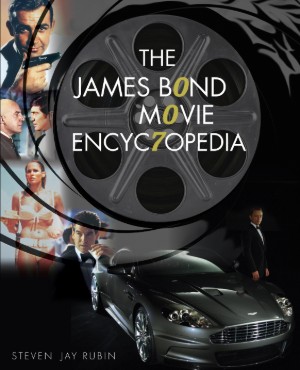(August 2, 1910–July 3, 1972): British screenwriter who in 1959 collaborated with producer Kevin McClory and author Ian Fleming on an abortive James Bond film project. When the project fell apart and Fleming published the novel Thunderball based on their work without permission, Whittingham joined McClory in a major lawsuit against Fleming, which they won in 1963.
The project began with a story memorandum by Fleming’s friend Ernest Cuneo, dated May 28, 1959, which outlined a Russian A-bomb hijacking caper. Fleming then wrote a treatment that changed the principal villain to the Mafia, which breaks into a US atomic base in England, steals a bomb, and transfers it from a helicopter to a tramp steamer to a flying boat and finally to a yacht in the Bahamas. Meanwhile, Fleming had Bond working with a fellow agent named Domino Smith, who infiltrates the Mafia in England.
In discussions, Whittingham had a number of problems with Fleming’s treatment. He felt that the idea of three disguised Mafia henchmen sneaking onto an American base and making off with a bomb was straining reality, and that too much time was spent transferring the bomb from chopper to ship to plane to yacht. Whittingham suggested that, in place of all this, the Mafia operatives hijack a NATO bomber with two atomic bombs already on board. They could then crash-land the plane in the Bahamas, where the bombs could still be transferred aboard the Mafia yacht via frogmen. Furthermore, he didn’t like Domino Smith’s easy penetration of the Mafia gang or the counterespionage plot in which the British Secret Service sends only two men and a girl to the Bahamas.
Whittingham also pointed out that Fleming’s story was told too much through dialogue, with not enough visuals to carry the filmic story along. In his revisions, he eliminated all Bond narration, took out an interlude at a public house in England, and removed 007’s description of the Mafia. He planned to introduce the villains not through description but through action.
Whittingham decided to begin the script with a Mafia agent named Martelli who journeys to Nassau, Bahamas, to tell his employer, an imposing mafioso named Largo, that a NATO observer named Joe Petachi is now under their control. Largo is pleased, offers him a fee of $10,000, and then promptly has one of his bodyguards shoot Martelli in the back, after which his body is thrown to the sharks.
In the Whittingham script, Largo’s home is called Xanadu, and Domino is replaced by a lazy American playgirl named Gaby. The head of the Sicilian-based Mafia, who had been named after Fleming’s friend Cuneo, was renamed Bastico. Whittingham also introduced one of Largo’s henchmen, Janni.
In this draft, Petachi hijacks the plane, but not before UK and American intelligence is able to get a faint trace of it in the mid-Atlantic. Bond is informed by M that this faint trace appears at longitude 78 west, so that is where Bond is sent. Longitude 78 West became the working title of the script.
Whittingham’s script followed the basic Fleming outline once Bond and Felix Leiter arrive in Nassau—they lead the investigation on the island, where they come across Largo and other Mafia types at a convention. Whittingham added a scene, however, in which Bond fights it out with an underwater sentry while searching the hull of Largo’s yacht (the name of which changed from the Virginia to the Sorrento). A British gunboat—replacing Fleming’s submarine—shadows the Sorrento until the final underwater battle, which this time takes place off the missile base on the island of Grand Bahama. In the end, Largo flies off in a seaplane with the second hijacked atomic bomb, unaware that Gaby has reset the detonator. As Bond and a wounded Leiter observe, the plane is obliterated.
When the Thunderball lawsuit was concluded in 1963, McClory won the film rights to the novel, which he sold to producers Albert R. Broccoli and Harry Saltzman. As the producers prepared to make the long-gestating film project a reality, Whittingham’s script was rewritten by American screenwriters Richard Maibaum and John Hopkins. However, the final film credit reads “Screenplay by Richard Maibaum and John Hopkins / Based on an original screenplay by Jack Whittingham / Based on the original story by Kevin McClory, Jack Whittingham and Ian Fleming.”
A native of Scarborough, North Yorkshire, England, Whittingham made his motion picture writing debut by contributing the original story for the pre–World War II drama Clouds over Europe (1939), a.k.a. Q Planes. Because it is essentially a remake of Thunderball, Whittingham also received original story credit on Never Say Never Again.

